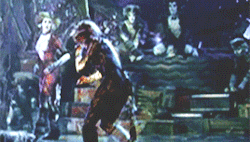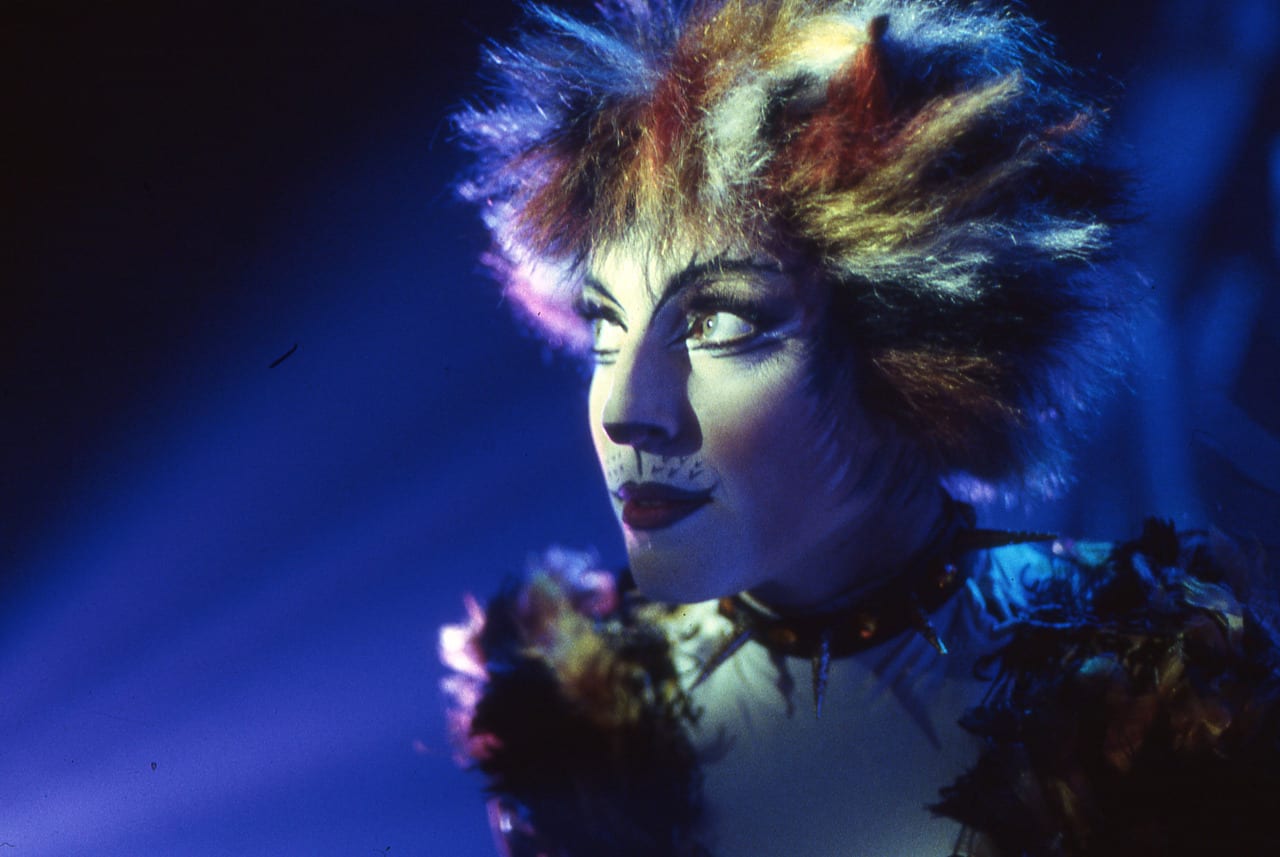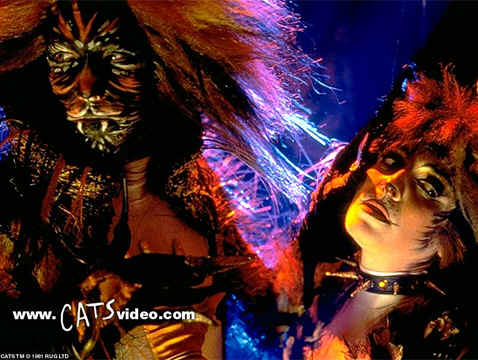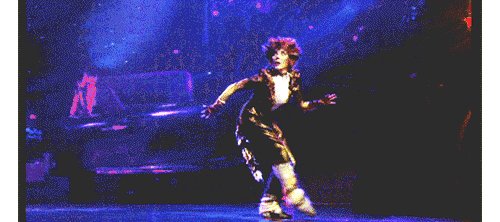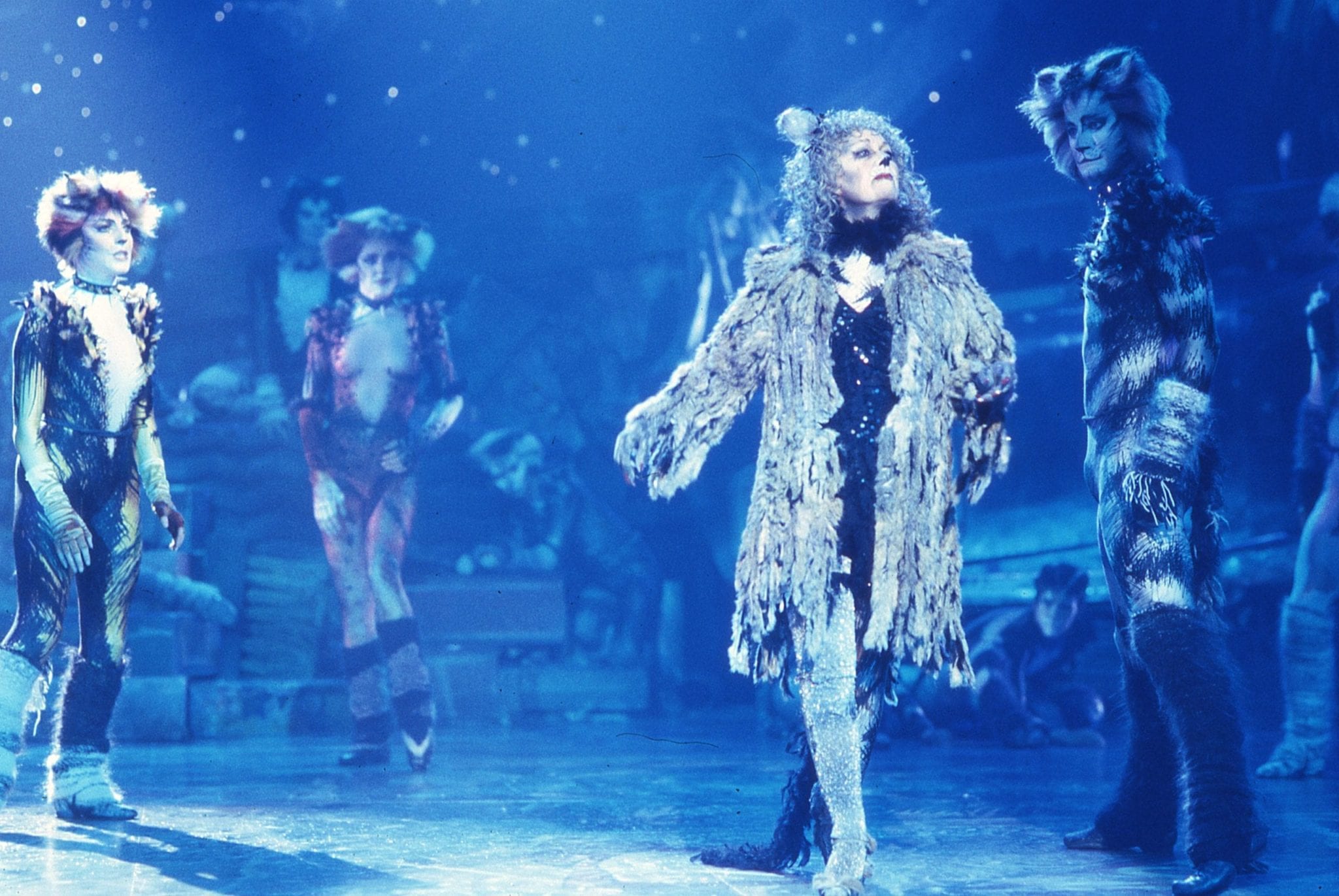Content warning: discussions of domestic violence and sexual assault; (mild) Spoiler warning for Cats (2019)
Introduction:
A striped, feline fever dream scored to 80s music, Cats remains one of the most successful theatre productions on either side of the pond. It’s recently reentered cultural conversation thanks to the controversial film adaptation, spotted by Hollywood stars and professional dancers. Though I have obviously kept my eye on news concerning Bombalurina (played by Taylor Swift), I have also been keeping Demeter in mind. Bombalurina and Demeter are best friends in the play. They duet ‘Macavity: the Mystery Cat’, revealing the eponymous villain’s exploits to the audience. Theirs is a sisterhood forged from overcoming their relationships with him.
Demeter provides a gentler kind of character relatable to an audience of neurodivergent survivors. Rather than be ‘saved’ by a love interest, she is defined by her love for the women in her life. She also provides insight into Bombalurina and Macavity’s personalities and motivations. This adaptation appears to be reducing her role however — reinterpreting Bombalurina’s character in relation to Macavity. Demeter’s general absence in the movie trailer and marketing, as far as I could find, has not been commented on or noticed by critics. In what appears to be an attempt to streamline the story, the Cats film adaptation loses one of the show’s most resonating, feminist connections.
Setting the Stage:
The foundation for Cats goes back eighty years: T.S. Eliot’s published his book, Old Possum’s Book of Practical Cats, a collection of whimsical poetry, in 1939. It detailed different British cats and their unusual names, littered with references to his adopted hometown of London. Demeter and Bombalurina appear in the first poem, ‘The Naming of Cats’, as examples of different feline names (p. 11). (I will discuss their names and subsequent connotations later.) Andrew Lloyd Webber, a British composer famous for works like The Phantom of the Opera and Jesus Christ Superstar, pulled from Elliot’s book and some of his unpublished works. Lloyd Webber set Eliot’s rhymes to music, leading to a musical sparse in plot, character backstories, and dialogue. Collaborators such as originating choreographer Gillian Lynne further developed on Webber’s ideas. In London, Sharon Lee-Hill originated the role of Demeter and Geraldine Gardner the role of Bombalurina.
Cats opened in the West End in 1981, debuting on Broadway a year later. The latter production ran until September 2000, and Webber’s overall property grossed billions. The musical’s website summarizes Cats as being about
the Jellicle Cats [who] come out to play on one special night of the year – the night of the Jellicle Ball. One by one they tell their stories for the amusement of Old Deuteronomy, their wise and benevolent leader, who must choose one of the Cats to ascend to The Heaviside Layer and be reborn into a whole new Jellicle life.
Because they do not have poems, Demeter and Bombalurian do not introduce themselves via individualized songs. Thus, from a character perspective, they are also not competing for that new life. The songs’ primary musical style — a rotating central character and backing choir — reminds me of Greek choirs that narrated a hero’s exploits. Alongside the central character and backing choir, certain cats will have solo lines and verses. Demeter has noticeable appearances on three songs, Bombalurina on five. Of those five, Bombalurina sings on all of the songs that Demeter appears in.
For clarity, I will split my analysis into two parts. Part one will examine Demeter’s character within the play, while part two will examine Bombalurina’s character and what we know about their cinematic versions. I will be basing most of my theatre analysis on the 1998 direct-to-video film, which consisted of various veteran cast members being recorded on stage sans audience. Aeva May played Demeter; Rosemarie Ford played Bombalurina. This film is close to a live recording in terms of story and design. Though this version underwent significant cuts to reduce the runtime, it provides a unique window into the actors’ interpretations of their characters thanks to close-ups and high-quality footage. In addition, I will be referencing a documentary about Gillian Lynne and a scholarly article on Eliot’s book. Youtuber chrissi2810 posted footage from this documentary, which included recordings of Lee-Hill and Gardner practicing with Lynne. I reached out to chrissi2810, and they informed me that the footage aired as part of the BBC’s documentary series, Omnibus. Though many online sources say that this documentary in 1981, the British Film Institute (BFI) lists the episode as having aired on January 17th, 1982. Dr. Dorothy Dodge Robbins, a literary scholar, examined Eliot’s naming conventions for the felines: “Imperial Names for ‘Practical Cats’: Establishing a Distinctly British Pride in Old Possum’s Book of Practical Cats”. I reached out to Robbins via email, and she was kind enough to send me a PDF of her article. Though her work focuses on Eliot’s original book, her thoughts provided valuable insight into the foundation of the Junkyard and its feline dancers.
Archetypal Tensions:
Contradiction is a recurring theme in Cats on and off stage. The Elvis-esque swaggerer Rum Tum Tugger sings about his intentional dissatisfaction and contrarian nature. The aging thespian Gus the Theatre Cat reminisces on his youth and performance highlights while lamenting the acting standards of today. The songs come from whimsical poetry about cats’ names, and they’re contrasted against Gillian Lynne’s sometimes sexual choreography.
This tension is also fundamental to the feline archetype. As a whole, we can’t make up our minds about cats and how they fit into our world. We fawn over kitten pics online, yet we jump to demonize black cats. It’s long been established that in the binaries of our world — masculine versus feminine, good versus bad — cats fall into the latter categories. For her 2007 exhibition, The Girlie Werewolf Project: Between the Wolf and the Dog, artist Jazmina Cininas summarized the wolf archetype, and her analysis applies to the cat archetype as well:
The wolf’s history as a construct of the popular psyche more closely parallels the way women have been portrayed throughout the ages. Its classic identities as either the selfless nurturing mother […], the diabolical werewolf, and as the ravening man-eater respectively mirror the chaste wife, heretic witch and femme fatale archetypes traditionally reserved for representations of women.
Similarly, there are the venerated cat-goddesses like Bastet, feline familiars loyal to witches and Satan alike, and then the adorable kitten to be cuddled. Once a girl grows up and realizes her claws, society slices her into either the good nurturer or the sexualized, independent b*tch.
When it comes to the women in Cats, some of their contradictions are very much related to womanhood and how society shapes the feminine experience. The silent Victoria, a white kitten embodying innocence, undergoes her sexual awakening over the course of the musical. She contrasts against Grizabella the Glamour Cat, who ‘fell’ from grace some time ago. Grizabella’s ostracization has its roots in slut-shaming and whorephobia. Demeter and Bombalurina’s contradictory features work in tandem together, partially because of their shared history with Macavity, mostly because of their commitment to other women. The contradictory becomes complimentary. Overall, the oppositional qualities that shape Demeter stem from the complexities of interpersonal trauma, which includes sexual assault, and the subsequent support from her loved ones, particularly her best friend.
Demeter’s Relationship to Trauma:
When the 1998 musical starts, Demeter comes onstage, the first cat that the audience sees. (It’s not clear if this order is maintained through all versions of the musical or not.) The Jellicle Ball — and thus the stage — takes place at a Junkyard, so there is a large open space surrounded by large props like car parts and tarps. Sound effects like that of a car startup, and a large spotlight simulating headlights shine overhead. She hisses and scurries into the debris. This moment later foreshadows Demeter’s coping mechanisms as an anxious cat and foreshadows Macavity’s appearance, originally signaled by alarm bells.
She has gold fur, with black stripes and a white chest, as well as white gloves, lending feminine elegance to her appearance. Most of the cats wear collars, and she and Bombalurina are some of the few who wear noticeably spiked collars. These two costume accessories capture her surviving spirit, how she bears that pain with grace, against the messy, prickly trauma. The gloves shield her from a certain level of touch, while the spikes protect one of the most vulnerable parts of her body. Official show material backs these character traits up.
On the musical’s old website, she shared her character page with Bombalurina, and it described Demeter as having a “dignified shell” which hides her “tortured soul.” The show also typically has a three-word description for each of its characters, with slight variation depending on the production. For example, Little Acorn Productions listed audition information that summarized Demeter as “skittish, cautious, [and] paranoid,” implying that she had a “past” with Macavity. The specifics of Demeter’s trauma, however, don’t come through in the musical, the cues based on the actress’ performance and fan inference.
Early fan theories posited that Demeter and Macavity had some sort of relationship, one that traumatized her and left her hypervigilant for his return. (You should have seen the fanfics that popped up when I started googling this topic.) During moments of chaos in the show, she would cry out his name, sensing his presence, and she even recognizes him when he disguises himself as Old Deuteronomy.
This backstory of romance gone wrong comes from a comment Gillian Lynne made to Sharon Lee-Hill in Omnibus: “She’s [Demeter] saying, “The man was wonderful when he made love to me, but I hated him!” […] I’d actually like your hands [as Demeter] to feel your own body, as he once did,” (t. 11:36). In the clip, Lynne runs her hands across her stomach as she says this, the women being in rehearsal for the ‘Macavity’ number.
Fans have also discussed Demeter’s history of sexual assault, though these sounded more like rumors and speculation than anything canon. It took some time and many Google pages, but I dug up official sources that confirm fandom hearsay. (With a fandom as old as Cats’, it seems that a lot of character backstories are rooted in obscure interviews or behind-the-scenes footage not easily available.) Compiling all of these statements together, a picture of Demeter as a psychologically-scarred survivor emerges.
In the early 2000s, fans interviewed Cats alumnae which included Keith Wilson and Jaymes Hodges. Both had played Macavity throughout the 90s, and they provided similar takes on the Demeter-Macavity connection. Wilson said, “I guess [Macavity] raped Demeter at some point or terrorized her, which is why she freaks out whenever he’s around.” Hodges, on the other hand, was blunt and certain in his explanation: “[Macavity] has a major dark side and wants power and control over all. […] He has strong sexual desires for Demeter and has raped her several times, which is why she’s hypersensitive to him.” Hodges also confirmed that production people inform the actors about the characters and their relationships, familial and romantic.
From 1998 to 2000, Lena Hall played Demeter, first on the national tour and then on Broadway. She appeared on Show People with Paul Wontorek in 2014 to discuss her career, and from 13:55 to 19:14, she talked everything Cats. She provided the most in-depth explanation of Demeter that I’ve been able to find, confirming things that fans had speculated about for decades:
Yes! I’m the one who’s curious about [Grizabella] because I [Demeter] am damaged. Because Demeter is the one who is damaged, because… She’s raped by Macavity. Yes, that’s why she sings about Macavity. Here’s the screwed up thing, is that… This is what I was told. She was raped by Macavity. And she… kind of liked it. But she’s scared, she knows he’s coming back, for her, to take her away, again. And she is torn between that kind of abuse and then of course not wanting that. […] So that’s kind of why she’s kind of the skitzy cat. ‘Cause she was raped. She was skitzy, and she had the shredded ears. […] Which I always imagined that was what Macavity had done. Now, this is all stuff that Gillian Lynne had told us. (t. 15:27-16:30).
Lynne and Hall, women who had intimate knowledge of the character, describe different aspects of interpersonal abuse. When Lynne says, “The man was wonderful when he made love to me, but I hated him!”, she is delineating the cycle of domestic violence. Shahida Arabi, a survivor of domestic violence who then studied narcissistic abuse and its effects, writes about this addiction. In abusive relationships with social predators, the initial courtship is a phase of idealization. The perpetrator ‘love bombs’ the target, forging a strong bond by mirroring them. The target is basically tricked into falling in love with themselves.
Because of the cycle of abuse, the body undergoes a physiological change, becoming addicted to the stress hormones that spike during incidents of abuse. Throw in some intermittent affection and oxytocin, and you’ll have an adrenaline junkie, one who will go through psychological withdrawal after the relationship ends. It’s one of the reasons why targets return to abusive relationships, especially since they’re not informed about the subsequent withdrawal. A target will miss their partner and the good memories while also experiencing this visceral pull towards stressors. Arabi explains how this addiction intersects with the target’s sexuality:
I’ve heard from many survivors who reminisce about the great sexual relationship they had with the narcissist, containing an electrifying sexual chemistry they feel unable to achieve with future partners. This is because charming emotional predators such as narcissists are able to mirror our deepest sexual and emotional desires, which leads to a strong sexual bond[.]
Abuse f*cks with a target’s soul, stirring up a chemical disaster in one’s brain and nervous system. It takes a long time for the target to readjust.
In terms of sexual assault and Hall’s explanation, it’s not unheard of for targets’ bodies to respond with pleasure or for an orgasm to occur. These physical responses never mean that a target wanted the assault or gave consent. They only prove that the body will respond to physical stimuli regardless of the person’s feelings sometimes. And a target is allowed to have complicated feelings about the assault and their attacker, especially if they were in a romantic relationship together. When a target misses the perpetrator, shame and guilt mix into the victim-blaming pushed by society and often pushed by the self. Outside support and validation become paramount in a target’s recovery.
When Hall says, “[Demeter’s] scared, she knows he’s coming back, for her, to take her away, again,” she is implying that Macavity kidnapped Demeter at least once in the past. Possibly more, when considering Hodges’s detail of Macavity raping her “several times”. This relationship and numerous assaults lay the groundwork for Demeter to have complex post-traumatic stress disorder (C-PTSD). In my Captain Marvel article, I discussed this disorder, not to diagnose Carol Danvers but to frame my analysis. We don’t see enough of Demeter’s internal world to gauge her self-concept and all of her interpersonal relationships, but having C-PTSD in my mind helped me analyze her anxiety and connection to Macavity.
Trauma hollows out the psyche, and Demeter’s “dignified shell” contrasted against her “tortured soul” analogizes the effects of long-term trauma. The word “dignified” in this context implies a regal coolness. In my opinion, that gets at the dissociation that permeates someone with a history like Demeter. It’s the iceberg associated with the tortured feminine, the expectation that women just grin and bear it. When writing about abused children in Trauma and Recovery, Judith Herman describes how they survive in dangerous homes: “[W]hile in a constant state of autonomic hyperarousal, [the children] must also be quiet and immobile[.] […] The result is the peculiar, seething state of “frozen watchfulness”,” (p.100). While not completely applicable to Demeter, who lives an autonomous life free from Macavity, there are parallels. Her trauma lingers with her in a very real way because of Macavity’s evasion from justice and his reputed power in the criminal underworld. She goes about her world with the knowledge that he really could come back for her. Thus it makes sense that she would learn how to compartmentalize her pain. For herself and for others.
Macavity and his obsession with Demeter, the one that got away, mirrors the perpetrator whose possessiveness and violence escalate after the target escapes. Him kidnapping her in order to rape her could possibly by an example of this. Hodges mentioned Macavity’s desire for “power and control”, and that fits into an abuser’s pursuit of their target. Macavity’s character description from Little Acorn Productions mentions him being “hypnotic, jealous, [and] dangerous.” These adjectives align with the cycle of abuse — the seduction and subsequent surveillance. The Cats Wikia also mentions ‘matinee lines’ that were added to some shows to better explain the story. When he kidnaps Old Deuteronomy, Macavity reportedly says to Demeter, “I’ll be back for you.” Though I couldn’t find an official source on this tidbit, I wanted to mention it. His line matches Hall’s statement almost word-for-word.
All of these elements form the undercurrent of Demeter’s motivations when singing the Macavity number.
The villain appears during the Jellicle Ball, and he terrorizes the crowd as his gang kidnaps Old Deuteronomy. When the cats scatter in fear, Demeter and Bombalurina are left holding each other at the center of the stage. Bombalurina slinks to the sidelines, facing the Junkyard with an aggressive stance, her claws out. It’s as if she’s sending a warning to Macavity and the other Jellicles, ensuring that Demeter has the space to process her retraumatization. Demeter circles the stage frantically, and right before she starts singing, she shakes her head and swipes at her ears. It’s not uncommon for trauma survivors and/or neurodivergent people to shake their heads in a physical attempt to ward off intrusive thoughts. The swiping bit reminds me of Hall’s reference to Demeter’s “shredded ears”; it’s possible Aeva May had a similar interpretation. Demeter is thus possibly relieving the abuse in that moment. Throughout her solo part, before Bombalurina joins in, Demeter’s choreography includes controlled jerkiness, as if her body is warding off Macavity. Love and hate roil inside as she grapples with who she was and who she’s become. And that hate is rooted in anger, which is rooted in fear. (Cue the Yoda quote-tape rewind.) These contradictory yet necessary emotions form the core of her.
Demeter v. Demeter:
Earlier, I mentioned the contradictions within the cats. This is true for Demeter as well, because though trauma shapes a large part of her personality, she goes out of her way to live in opposition to her fear through kindness and community. Her very name connotes a dual self.
In her article on cat names, Dr. Robbins writes, “T.S. Eliot provides three categories — the familial, the particular, and the secretive — to delineate the naming of cats,” (p. 21). Demeter’s name falls into the first category, though Eliot qualifies her name as being one of several “fancier names if you think they sound sweeter,” (Eliot p. 11). Robbins goes on to note the comical, whimsical tone in Eliot’s poetry as he writes with an awareness of “how incongruous these classical names would sound to readers within the context of the familiar,” (p. 21). Lloyd Webber and his company further folded in on these incongruities, the choreographed musical numbers another attempt to capture the elusive cat archetype. On our tongue is the soft “de” and “mee” contrast against the harsh, concluding ‘t’ sound. Demeter’s name is simultaneously familiar and archaic, imbued with an etymological history we may not necessarily know but feel.
At the beginning of Omnibus, Lynne explains the aesthetic of Cats: “I like sort of Pagan things, and cats are often pagan and […] cruel as well as sensual and soft[.]” The name ‘Demeter’ certainly falls under these adjectives, when considering the duality of the Greek goddess of agriculture, known for her nurturing and for her vengeful nature.
In mythology, Demeter the Goddess survives a rape too: after hunting her down, the sea-god Poseidon attacks her and impregnates her. The assault triggers a shift in her sense of self, and she takes on the epithet ‘Demeter Erinys’ in reference to her wrath. Later, she cleanses herself in the River Ladon and becomes ‘Demeter Louisa’, as the waters wash away her anger. A temple in the area even had two statues of Demeter that depicted these dual personas. She shares these traits with her daughter Persephone, the Goddess of spring and Queen of the Underworld; together they were the main figures in the cult of the Eleusinian Mysteries, a series of annual secret rituals.
One site dedicated to modern worshippers writes, “[O]ne of the aspects of the Goddess most associated with Her [is mourning].” (In terms of how Demeter related to Persephone, I already discussed that theme in my first article on feral feminism.) This theme of mourning resonates with Demeter from Cats, per the references to her “dignified shell” and “tortured soul”. Similarly, the online community of narcissistic abuse survivors reference that kind of psychological abuse as “soul rape” and “soul murder”, stressing the destructive, violative elements of those relationships. The life-changing nature of trauma is reaffirmed throughout our history of stories like that of Greek Demeter. This history also reaffirms the complexity of women between the verses.
These onomastic, mythological connections reveal a foundation shaped around Demeter as an internal, compassionate character known as the ‘Suffering Empath’. Identified by Gretchen, she defined the ‘Suffering Empath’ trope as a character “whose primary features [include] the way they sublimate their own experiences of suffering in order to reach out to others.” This compassion that Demeter extends is also directed towards the women in her tribe, bringing a feminist connection to the characters.
She manages her demons in order to enjoy the people around her and enjoy her own self. For one thing, there’s the implication that she has regained ownership of her sexuality. Her character page listed “flirting” as her and Bombalurina’s skill. To say the least, that description is problematic, filtering women down to their sexuality and their bodies, especially in the case of Bombalurina who everyone oversexualizes as the flirty bombshell. With Demeter though, it also alludes to her reclaiming her bodily autonomy, healing enough that she can enjoy her desires. In most productions, she finds a mate in Alonzo, and in the 1998 film, she ends up with Munkustrap. Throughout the play, she also mothers the kittens and joins Bombalurina and Jellyorum in introducing Jennanydots to the tribe. That number is a quartet of all women.
Her kindness comes out the most when Grizabella the Glamour Cat appears on stage. As Lena Hall explained, Demeter sympathizes with the older cat, both having been damaged in their lives. Grizabella is usually portrayed as an older woman with a limp, and most of the adult Jellicles reject her, the implication that she left and/or was banished long ago. In the show, Grizabella is coded as a sex worker through her torn coat, similar to the kind worn by sex workers in other media, and through her story as a fallen performer. (Think of Satine from Moulin Rouge, an actress who became a courtesan to survive.) Jaymes Hodges described Grizabella as someone branded with a scarlet letter:
I think she thought she was better than the rest of us and set out from the tribe to become some kind of “superstar”—and things didn’t go as she planned. She became a drugged up prostitute and a huge disgrace to the tribe so nobody wanted her back around as we thought she was bad news.
Various cats reject her, one rudely bumping her aside. As Grizabella stumbles and rebalances herself, Demeter reaches out to help. She only leaves because Bombalurina, out of misguided fear, anger, and mistrust towards Grizabella, steers Demeter away. This mirrors the older women cats like Jellyorum keeping the kittens from Grizabella. The kittens, like Victoria and Jemima, express innocent curiosity and compassion, not fully understanding and having not fully internalized the tribe’s mentality. When Jellyorum describes Grizabella’s sand-stained coat with a pointed finger, mouth turned downward, her gaze is all judgement. Demeter, on the other hand, sings about Grizabella’s plight with sadness and empathy. Bombalurina having to lead her away, a parallel to the kittens, reveals how empathy breaks through societal conditioning.
Demeter as a Suffering Empath peaks though, in my opinion, when she confronts Macavity to prevent him from infiltrating the tribe. Right after the Macavity song, he walks onto stage dressed as Old Deuteronomy. While all of the cats accept this, Demeter immediately senses that something is wrong. She snarls and trembles, Bombalurina trying to comfort her, but Demeter trusts her instincts. She lunges at Macavity, and as he tries to shake her off, he’s forced to reveal himself. He then uses this as an opportunity to kidnap her, dragging her away until Munkustrap can intervene.
As I researched Demeter’s perception within the theatre world and within the fandom, it was surprising to discover no character information alluded to her bravery. There were so many references to her fear, her “elegant” and “ladylike” nature. It could be interpreted that these character descriptions focused on Demeter at the beginning, her courage developing throughout the course of the play, her confrontation of Macavity the climax of an arc. Lloyd Webber’s play obscures the characters’ internal worlds, so we can’t know for certain how much Demeter changed between the curtains rising and their falling. That does not explain the fandom though. Fans hyper-analyze everything, yet I cannot recall any mention of the word “brave” or “courageous”. She confronts her abuser — who she knows intends to kidnap her — to protect her loved ones from his influence and machinations. Her main emotional connection is with another woman, her best friend, instead of a romance with a man. Overall, Demeter faces her demons in a very literal sense in order to spare others the suffering that she was subjected to, yet she manages her trauma enough that she can go out to a ball, have a good time. Tumblr user theimpossiblescheme summarized Demeter best, writing, “If I wanted to describe Demeter, I’d say to picture what Ophelia would be like if, instead of going mad and killing herself, she carried that pain and sense of personal injustice into her adulthood and wore it like a skin.”
Her bravery and recovery are two of the reasons why she stood out to me and why her apparent reduction in the adaptation is such a loss. Though a children’s movie wouldn’t incorporate all of the more mature themes and details from her backstory, a properly adapted Demeter would still be a survivor and still could be a survivor of domestic violence. And in this era, we need those kinds of stories more than ever.


